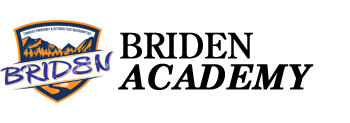“Be Prepared, Not Scared”: A Guide to Proactive Living
In a world that often seems unpredictable and chaotic lets remember the motto “Be prepared, not scared”. The key to navigating through life’s uncertainties lies in preparation rather than fear. Adopt a proactive mindset to empower yourself to face challenges head-on.
Embracing a Proactive Mindset
Anticipate Challenges: One of the cornerstones of preparation is anticipating potential challenges. By identifying hurdles in advance, you can develop strategies to overcome them. Look at your professional and personal life for ways that challenges arise.
Set Goals and Objectives: Have clear goals and objectives. Define what success looks like for you and create a roadmap to achieve it. Set realistic and achievable milestones to help you stay focused and motivated.
Continuous Learning: A proactive mindset includes a commitment to continuous learning. Stay informed about changes in your industry, acquire new skills, and broaden your knowledge base. This not only enhances your adaptability but also positions you as a valuable asset in any situation.
Preparedness in Daily Life
Financial Security: Establish an emergency fund, manage your budget, and invest in your future. This financial preparedness provides a safety net during unexpected events.
Health and Well-being: Prioritize your health by adopting a proactive approach. Take preventative measures through regular exercise, a balanced diet, and routine health check-ups to to overall well-being.
Time Management: Organize your daily tasks, prioritize responsibilities, and set realistic deadlines. This not only reduces stress but also ensures that you are well-prepared for upcoming challenges.
Emergency Food Storage: Having 1, 3, 6, 9, or 12 month food & water storage can remove stress from an emergency situation (short or long term). Contact our team at Briden Solutions, or email BridenAcademy@BridenSolutions.ca for more support and help with this category.
Facing the Unknown with Confidence
Crisis Preparedness: Life is unpredictable, and unforeseen crises can occur. Establish a crisis management plan for both personal and professional scenarios. Having a well-thought-out plan allows you to respond calmly and effectively in times of crisis.
Emotional Resilience: Being prepared extends beyond the tangible aspects of life. Cultivate emotional resilience by developing coping mechanisms for stress and adversity. This mental preparedness equips you to face challenges with a clear and focused mind.
Adaptability: While preparation is important, so is adaptability. Be open to change, and be willing to adjust your plans when necessary. A rigid mindset can hinder progress, but a prepared and adaptable approach ensures you are ready for whatever comes your way.
Assessing your own flexibility and rigidity can be a valuable self-reflection exercise. Here are some questions to help you gauge your level of adaptability and openness to change:
- How do you react to unexpected changes in your plans or routine?
- Are you able to adapt quickly, or does it cause significant stress and discomfort?
- In what ways have you embraced new ideas or perspectives in the last year?
- Reflect on instances where you were open to changing your viewpoint or considering alternative opinions.
- Are you comfortable with ambiguity and uncertainty, or do you prefer clear-cut plans?
- Consider your tolerance for situations where outcomes are uncertain.
- How often do you seek feedback on your work or behavior?
- Openness to feedback can be an indicator of a flexible mindset.
- Do you find it challenging to let go of control in certain situations?
- Consider whether you have a tendency to micromanage or if you can delegate effectively.
- Are you resistant to change, even if it might lead to improvement?
- Evaluate your attitude towards change, especially when it comes to making improvements in your personal or professional life.
- Think about a recent disagreement. Were you willing to compromise or stuck to your position rigidly?
- Assess your ability to find common ground and collaborate with others.
- How do you respond to constructive criticism?
- Reflect on whether you are open to feedback or if you become defensive when receiving constructive criticism.
- In what areas of your life do you resist trying new things or taking risks?
- Identify aspects where you might be avoiding stepping out of your comfort zone.
Take questions such as these, and decide what kind of flexibility you hold, and should you find yourself closer to rigidity, embrace who you are! Create ways in your plan to communicate that to others during a crisis. Prepare yourself and learns ways (such as what is listed above) to handle moments that may cause you stress. Knowledge is power.
Self-awareness is the first step toward personal growth and positive change, so use these questions as a starting point for understanding and improving your adaptability.
Conclusion
In the face of uncertainty, being prepared is a powerful tool for navigating life’s journey. The proactive mindset is not about living in constant fear but rather about facing challenges with confidence, armed with the knowledge and resources to overcome them. So, let’s embrace the mantra: “Be prepared, not scared,” and approach life with a sense of readiness and resilience!



